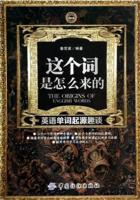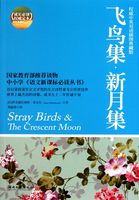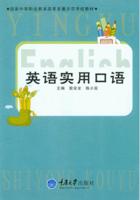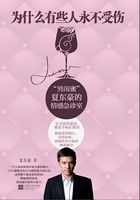From this time the subject was never revived by Elinor; and when entered on by Lucy, who seldom missed an opportunity of introducing it and was particularly careful to inform her confidante of her happiness whenever she received a letter from Edward, it was treated by the former with calmness and caution, and dismissed as soon as civility would allow; for she felt such conversations to be an indulgence which Lucy did not deserve and which were dangerous to herself.
The visit of the Miss Steeles at Barton Park was lengthened far beyond what the first invitation implied. Their favour increased; they could not be spared; Sir John would not hear of their going; and in spite of their numerous and long-arranged engagements in Exeter, in spite of the absolute necessity of their returning to fulfil them immediately, which was in full force at the end of every week, they were prevailed on to stay nearly two months at the park and to assist in the due celebration of that festival which requires a more than ordinary share of private balls and large dinners to proclaim its importance.
Chapter 3
THOUGH MRS. JENNINGS was in the habit of spending a large portion of the year at the houses of her children and friends, she was not without a settled habitation of her own. Since the death of her husband, who had traded with success in a less elegant part of the town, she had resided every winter in a house in one of the streets near Portman Square. Towards this home she began on the approach of January to turn her thoughts, and thither she one day abruptly, and very unexpectedly by them, asked the elder Miss Dashwoods to accompany her. Elinor, without observing the varying complexion of her sister and the animated look which spoke no indifference to the plan, immediately gave a grateful but absolute denial for both, in which she believed herself to be speaking their united inclinations. The reason alleged was their determined resolution of not leaving their mother at that time of the year. Mrs. Jennings received the refusal with some surprise and repeated her invitation immediately.
"Oh!Lord,I am sure your mother can spare you very well,and I do beg you will favour me with your company, for I've quite set my heart upon it. Don't fancy that you will be any inconvenience to me, for I shan't put myself at all out of my way for you. It will only be sending Betty by the coach,and I hope I can afford that.We three shall be able to go very well in my chaise; and when we are in town if you do not like to go wherever I do, well and good, you may always go with one of my daughters. I am sure your mother will not object to it; for I have had such good luck in getting my own children off my hands that she will think me a very fit person to have the charge of you; and if I don't get one of you at least well married before I have done with you, it shall not be my fault. I shall speak a good word for you to all the young men, you may depend upon it."
"I have a notion," said Sir John, "that Miss Marianne would not object to such a scheme if her elder sister would come into it. It is very hard indeed that she should not have a little pleasure because Miss Dashwood does not wish it. So I would advise you two to set off for town when you are tired of Barton, without saying a word to Miss Dashwood about it."
"Nay," cried Mrs. Jennings, "I am sure I shall be monstrous glad of Miss Marianne's company, whether Miss Dashwood will go or not; only the more the merrier say I, and I thought it would be more comfortable for them to be together because if they got tired of me, they might talk to one another and laugh at my odd ways behind my back. But one or the other, if not both of them, I must have. Lord bless me! How do you think I can live poking by myself, I who have been always used till this winter to have Charlotte with me. Come, Miss Marianne, let us strike hands upon the bargain, and if Miss Dashwood will change her mind by-and-by, why so much the better."
"I thank you, ma'am, sincerely thank you," said Marianne with warmth; "your invitation has insured my gratitude forever, and it would give me such happiness, yes almost the greatest happiness I am capable of, to be able to accept it. But my mother, my dearest, kindest mother—I feel the justice of what Elinor has urged, and if she were to be made less happy, less comfortable by our absence—Oh! no, nothing should tempt me to leave her. It should not, must not be a struggle."
Mrs. Jennings repeated her assurance that Mrs. Dashwood could spare them perfectly well; and Elinor, who now understood her sister and saw to what indifference to almost everything else she was carried by her eagerness to be with Willoughby again, made no further direct opposition to the plan, and merely referred it to her mother's decisions, from whom, however, she scarcely expected to receive any support in her endeavour to prevent a visit which she could not approve of for Marianne, and which on her own account she had particular reasons to avoid. Whatever Marianne was desirous of, her mother would be eager to promote; she could not expect to influence the latter to cautiousness of conduct in an affair respecting which she had never been able to inspire her with distrust; and she dared not explain the motive of her own disinclination for going to London. That Marianne, fastidious as she was, thoroughly acquainted with Mrs. Jennings' manners, and invariably disgusted by them, should overlook every inconvenience of that kind, should disregard whatever must be most wounding to her irritable feelings, in her pursuit of one object, was such a proof, so strong, so full of the importance of that object to her, as Elinor, in spite of all that had passed, was not prepared to witness.
On being informed of the invitation, Mrs. Dashwood, persuaded that such an excursion would be productive of much amusement to both her daughters, and perceiving through all her affectionate attention to herself how much the heart of Marianne was in it, would not hear of their declining the offer upon her account;insisted on their both accepting it directly, and then began to foresee with her usual cheerfulness a variety of advantages that would accrue to them all from this separation.
"I am delighted with the plan," she cried; "it is exactly what I could wish. Margaret and I shall be as much benefited by it as yourselves. When you and the Middletons are gone, we shall go on so quietly and happily together with our books and our music! You will find Margaret so improved when you come back again! And I have a little plan of alteration for your bedrooms too, which may now be performed without inconvenience to anyone.It is very right that you should go to town;I would have every young woman of your condition in life acquainted with the manners and amusements of London. You will be under the care of a motherly good sort of woman, of whose kindness to you I can have no doubt. And in all probability you will see your brother, and whatever may be his faults or the faults of his wife, when I consider whose son he is, I cannot bear to have you so wholly estranged from each other."
"Though with your usual anxiety for our happiness," said Elinor, "you have been obviating every impediment to the present scheme which occurred to you, there is still one objection which, in my opinion, cannot be so easily removed."
Marianne's countenance sank.
"And what," said Mrs. Dashwood, "is my dear prudent Elinor going to suggest? What formidable obstacle is she now to bring forward? Do not let me hear a word about the expense of it."
"My objection is this: though I think very well of Mrs. Jennings's heart, she is not a woman whose society can afford us pleasure or whose protection will give us consequence."
"That is very true," replied her mother; "but of her society, separately from that of other people, you will scarcely have anything at all, and you will almost always appear in public with Lady Middleton."
"If Elinor is frightened away by her dislike of Mrs. Jennings," said Marianne,"at least it need not prevent my accepting her invitation. I have no such scruples, and I am sure I could put up with every unpleasantness of that kind with very little effort."
Elinor could not help smiling at this display of indifference towards the manners of a person to whom she had often had difficulty in persuading Marianne to behave with tolerable politeness, and resolved within herself that if her sister persisted in going, she would go likewise, as she did not think it proper that Marianne should be left to the sole guidance of her own judgment or that Mrs. Jennings should be abandoned to the mercy of Marianne for all the comfort of her domestic hours. To this determination she was the more easily reconciled by recollecting that Edward Ferrars, by Lucy's account, was not to be in town before February; and that their visit, without any unreasonable abridgment, might be previously finished.
"I will have you both go,"said Mrs.Dashwood;"these objections are nonsensical. You will have much pleasure in being in London and especially in being together; and if Elinor would ever condescend to anticipate enjoyment, she would foresee it there from a variety of sources; she would perhaps expect some from improving her acquaintance with her sister-in-law's family."
Elinor had often wished for an opportunity of attempting to weaken her mother's dependence on the attachment of Edward and herself, that the shock might be the less when the whole truth were revealed, and now on this attack, though almost hopeless of success, she forced herself to begin her design by saying as calmly as she could, "I like Edward Ferrars very much and shall always be glad to see him, but as to the rest of the family, it is a matter of perfect indifference to me whether I am ever known to them or not."
Mrs. Dashwood smiled and said nothing. Marianne lifted up her eyes in astonishment, and Elinor conjectured that she might as well have held her tongue.
After very little further discourse, it was finally settled that the invitation should be fully accepted. Mrs. Jennings received the information with a great deal of joy and many assurances of kindness and care; nor was it a matter of pleasure merely to her. Sir John was delighted; for to a man whose prevailing anxiety was the dread of being alone, the acquisition of two to the number of inhabitants in London was something. Even Lady Middleton took the trouble of being delighted,which was putting herself rather out of her way; and as for the Miss Steeles, especially Lucy, they had never been so happy in their lives as this intelligence made them.
Elinor submitted to the arrangement which counteracted her wishes with less reluctance than she had expected to feel. With regard to herself, it was now a matter of unconcern whether she went to town or not, and when she saw her mother so thoroughly pleased with the plan, and her sister exhilarated by it in look, voice, and manner, restored to all her usual animation and elevated to more than her usual gaiety, she could not be dissatisfied with the cause and would hardly allow herself to distrust the consequence.
Marianne's joy was almost a degree beyond happiness, so great was the perturbation of her spirits and her impatience to be gone. Her unwillingness to quit her mother was her only restorative to calmness;and at the moment of parting, her grief on that score was excessive. Her mother's affliction was hardly less, and Elinor was the only one of the three who seemed to consider the separation as anything short of eternal.
Their departure took place in the first week in January. The Middletons were to follow in about a week. The Miss Steeles kept their station at the park and were to quit it only with the rest of the family.
Chapter 4
ELINOR COULD NOT find herself in the carriage with Mrs. Jennings, and beginning a journey to London under her protection and as her guest, without wondering at her own situation, so short had their acquaintance with that lady been, so wholly unsuited were they in age and disposition, and so many had been her objections against such a measure only a few days before! But these objections had all, with that happy ardour of youth which Marianne and her mother equally shared, been overcome or overlooked; and Elinor, in spite of every occasional doubt of Willoughby's constancy, could not witness the rapture of delightful expectation which filled the whole soul and beamed in the eyes of Marianne without feeling how blank was her own prospect, how cheerless her own state of mind in the comparison, and how gladly she would engage in the solicitude of Marianne's situation to have the same animating object in view, the same possibility of hope. A short, a very short time, however, must now decide what Willoughby's intentions were; in all probability he was already in town. Marianne's eagerness to be gone declared her dependence on finding him there; and Elinor was resolved not only upon gaining every new light as to his character which her own observation or the intelligence of others could give her, but likewise upon watching his behaviour to her sister with such zealous attention as to ascertain what he was and what he meant, before many meetings had taken place. Should the result of her observations be unfavourable, she was determined at all events to open the eyes of her sister; should it be otherwise, her exertions would be of a different nature—she must then learn to avoid every selfish comparison and banish every regret which might lessen her satisfaction in the happiness of Marianne.
They were three days on their journey, and Marianne's behaviour as they travelled was a happy specimen of what her future complaisance and companionableness to Mrs. Jennings might be expected to be. She sat in silence almost all the way, wrapped in her own meditations, and scarcely ever voluntarily speaking except when any object of picturesque beauty within their view drew from her an exclamation of delight exclusively addressed to her sister. To atone for this conduct therefore, Elinor took immediate possession of their post of civility which she had assigned herself, behaved with the greatest attention to Mrs. Jennings, talked with her, laughed with her, and listened to her whenever she could; and Mrs. Jennings on her side treated them both with all possible kindness, was solicitous on every occasion for their ease and enjoyment, and only disturbed that she could not make them choose their own dinners at the inn nor extort a confession of their preferring salmon to cod, or boiled fowls to veal cutlets. They reached town by three o'clock the third day, glad to be released after such a journey from the confinement of a carriage, and ready to enjoy all the luxury of a good fire.
The house was handsome and handsomely fitted up, and the young ladies were immediately put in possession of a very comfortable apartment. It had formerly been Charlotte's, and over the mantelpiece still hung a landscape in coloured silks of her performance, in proof of her having spent seven years at a great school in town to some effect.
As dinner was not to be ready in less than two hours from their arrival, Elinor determined to employ the interval in writing to her mother and sat down for that purpose. In a few moments Marianne did the same."I am writing home, Marianne," said Elinor; "had not you better defer your letter for a day or two?"
"I am not going to write to my mother,"replied Marianne hastily and as if wishing to avoid any further inquiry. Elinor said no more; it immediately struck her that she must then be writing to Willoughby, and the conclusion which as instantly followed was that however mysteriously they might wish to conduct the affair, they must be engaged. This conviction, though not entirely satisfactory, gave her pleasure, and she continued her letter with greater alacrity. Marianne's was finished in a very few minutes; in length it could be no more than a note: it was then folded up, sealed, and directed with eager rapidity. Elinor thought she could distinguish a large W in the direction, and no sooner was it complete than Marianne, ringing the bell, requested the footman who answered it to get that letter conveyed for her to the two-penny post. This decided the matter at once.
Her spirits still continued very high, but there was a flutter in them which prevented their giving much pleasure to her sister, and this agitation increased as the evening drew on. She could scarcely eat any dinner, and when they afterwards returned to the drawing-room, seemed anxiously listening to the sound of every carriage.
It was a great satisfaction to Elinor that Mrs. Jennings, by being much engaged in her own room, could see little of what was passing. The tea-things were brought in, and already had Marianne been disappointed more than once by a rap at a neighbouring door when a loud one was suddenly heard which could not be mistaken for one at any other house. Elinor felt secure of its announcing Willoughby's approach, and Marianne, starting up, moved towards the door. Everything was silent;this could not be borne many seconds; she opened the door, advanced a few steps towards the stairs, and after listening half a minute, returned into the room in all the agitation which a conviction of having heard him would naturally produce; in the ecstasy of her feelings at that instant she could not help exclaiming, "Oh! Elinor, it is Willoughby, indeed it is!"and seemed almost ready to throw herself into his arms, when Colonel Brandon appeared.
It was too great a shock to be borne with calmness, and she immediately left the room. Elinor was disappointed too; but at the same time her regard for Colonel Brandon ensured his welcome with her, and she felt particularly hurt that a man so partial to her sister should perceive that she experienced nothing but grief and disappointment in seeing him. She instantly saw that it was not unnoticed by him, that he even observed Marianne as she quitted the room, with such astonishment and concern as hardly left him the recollection of what civility demanded towards herself.
"Is your sister ill?" said he.
Elinor answered in some distress that she was, and then talked of headaches, low spirits, and over fatigues; and of everything to which she could decently attribute her sister's behaviour.
He heard her with the most earnest attention, but seeming to recollect himself, said no more on the subject, and began directly to speak of his pleasure at seeing them in London, making the usual inquiries about their journey and the friends they had left behind.
In this calm kind of way, with very little interest on either side, they continued to talk, both of them out of spirits, and the thoughts of both engaged elsewhere. Elinor wished very much to ask whether Willoughby were then in town, but she was afraid of giving him pain by an inquiry after his rival; and at length, by way of saying something, she asked if he had been in London ever since she had seen him last. "Yes," he replied with some embarrassment, "almost ever since; I have been once or twice at Delaford for a few days, but it has never been in my power to return to Barton."
This, and the manner in which it was said, immediately brought back to her remembrance all the circumstances to his quitting that place, with the uneasiness and suspicions they had caused to Mrs. Jennings, and she was fearful that her question had implied much more curiosity on the subject than she had ever felt.
Mrs. Jennings soon came in. "Oh! Colonel," said she with her usual noisy cheerfullness, "I am monstrous glad to see you—sorry I could not come before —beg your pardon, but I have been forced to look about me a little and settle my matters; for it is a long while since I have been at home, and you know one has always a world of little odd things to do after one has been away for any time; and then I have had Cartwright to settle with—Lord, I have been as busy as a bee ever since dinner! But pray, Colonel, how came you to conjure out that I should be in town to-day?"
"I had the pleasure of hearing it at Mr. Palmer's, where I have been dining."
"Oh! you did; well, and how do they all do at their house? How does Charlotte do? I warrant you she is a fine size by this time."
"Mrs. Palmer appeared quite well, and I am commissioned to tell you that you will certainly see her to-morrow."
"Aye, to be sure, I thought as much. Well, Colonel, I have brought two young ladies with me, you see—that is, you see but one of them now, but there is another somewhere. Your friend Miss Marianne, too—which you will not be sorry to hear. I do not know what you and Mr. Willoughby will do between you about her. Aye, it is a fine thing to be young and handsome—worse luck for me. However I got a very good husband, and I don't know what the greatest beauty can do more. Ah! Poor man! He has been dead these eight years and better. But Colonel, where have you been to since we parted? And how does your business go on? Come, come, let's have no secrets among friends."
He replied with his accustomary mildness to all her inquiries, but without satisfying her in any. Elinor now began to make the tea, and Marianne was obliged to appear again.
After her entrance, Colonel Brandon became more thoughtful and silent than he had been before, and Mrs. Jennings could not prevail on him to stay long. No other visitor appeared that evening, and the ladies were unanimous in agreeing to go early to bed.
Marianne rose the next morning with recovered spirits and happy looks. The disappointment of the evening before seemed forgotten in the expectation of what was to happen that day. They had not long finished their breakfast before Mrs. Palmer's barouche stopped at the door, and in a few minutes she came laughing into the room, so delighted to see them all that it was hard to say whether she received most pleasure from meeting her mother or the Miss Dashwoods again; so surprised at their coming to town, though it was what she had rather expected all along;so angry at their accepting her mother's invitation after having declined her own, though at the same time she would never have forgiven them if they had not come!
"Mr. Palmer will be so happy to see you," said she; "what do you think he said when he heard of your coming with mama? I forget what it was now, but it was something so droll!"
After an hour or two spent in what her mother called comfortable chat, or in other words, in every variety of inquiry concerning all their acquaintance on Mrs. Jennings's side, and in laughter without cause on Mrs. Palmer's, it was proposed by the latter that they should all accompany her to some shops where she had business that morning, to which Mrs. Jennings and Elinor readily consented, as having likewise some purchases to make themselves; and Marianne, though declining it at first, was induced to go likewise.
Wherever they went, she was evidently always on the watch. In Bond Street especially, where much of their business lay, her eyes were in constant inquiry; and in whatever shop the party were engaged, her mind was equally abstracted from everything actually before them, from all that interested and occupied the others. Restless and dissatisfied everywhere, her sister could never obtain her opinion of any article of purchase however it might equally concern them both; she received no pleasure from anything; was only impatient to be at home again, and could with difficulty govern her vexation at the tediousness of Mrs. Palmer, whose eye was caught by everything pretty, expensive, or new;who was wild to buy all, could determine on none, and dawdled away her time in rapture and indecision.
It was late in the morning before they returned home; and no sooner had they entered the house than Marianne flew eagerly upstairs, and when Elinor followed, she found her turning from the table with a sorrowful countenance which declared that no Willoughby had been there.
"Has no letter been left here for me since we went out?" she said to the footman who then entered with the parcels. She was answered in the negative. "Are you quite sure of it?" she replied. "Are you certain that no servant, no porter has left any letter or note?"
The man replied that none had.
"How very odd!" said she in a low and disappointed voice as she turned away to the window.















